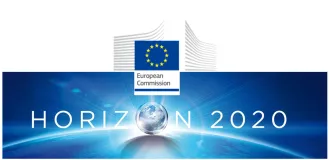GECO
Relevant project information
Dates
Project website
Role of CIRCE
Grant agreement number
Funded by

Description and objectives
The GECO Project, “Geothermal Emission Control” will contribute to the provision of cleaner and more cost-effective geothermal energy, with reduced carbon and sulfur emissions, for use on a European and global scale.
The key objective of the project is the application of an innovative technology, recently developed and successfully demonstrated on a pilot scale in Iceland, which is capable of limiting emissions from geothermal plants through condensation and re-injection of gases into the ground (or even transforming them into commercial products).
GECO is seeking to increase public acceptance while making this new approach more widespread. To this end, the reinjection method will be applied in 4 demosites with different geological characteristics in different European countries.
Iceland: High-temperature basaltic reservoir
Italy: High-temperature gneiss (metamorphic rock composed of the same minerals as granite, but in bands) reservoir
Turkey: High-temperature volcano-clastic reservoir
Germany: Low temperature sedimentary reservoir
Value proposition
A detailed and uniform monitoring program will analyze and model the reactivity and behavior of reinjected fluids in the different demosites. This will create new and more effective modeling tools to predict the reactions that will occur in the subsurface in response to the induced flows.
Together with GECO, different methods of gas capture and purification will be developed, bringing the reduction of resource consumption (electricity, water and chemicals) closer. GECO's approach consists of:
- Capturing waste gases from the geothermal process.
- Dissolving them in the geothermal water flows, re-injecting the aqueous solution.
- The reinjected fluid causes the dissolution of rocks at the surface, increasing the permeability of the reservoir and fixing the dissolved gases by mineralization.
Thus, waste gases are stored in the long term, in a sustainable way, while emissions from geothermal energy are reduced, compared to traditional techniques.
Finally, the capture of gases for reuse will be tested through the production of purified CO2 streams with negligible levels of hydrogen sulfide (H2S). The valorization of this product will be demonstrated through different routes of further use as part of the GECO project.
The objective of GECO is the development of an innovative technology that seeks to:
- Reduce or Limit emissions from geothermal plants.
- Bring the benefits of geothermal energy closer to the public, increasing its acceptance.
- Generalize this new approach to geothermal energy, which has previously been successfully tested on a pilot scale.
- To develop niche markets from the project solutions.
Project partners
REYKJAVIK ENERGY (OR), ICELAND GEOSURVEY (ISOR), CENTRE NATIONAL DE LA RECHERCHE SCIENTIFIQUE (CNRS), GEOTHERMAL RESEARCH CLUSTER (GEORG), UNIVERSITY OF ICELAND (UI), IFP ENERGIES NOUVELLES (IFPEN), UNIVERSITY OF FIRENZE (UNIFI), GRAZIELLA GREEN POWER (GGP), STORENGY (STY), CIRCE, GREEN MINERALS (GM), ZORLU ENERJI ELEKTRIK ÜRETIM (ZOREN), UNITED KINGDOM RESEARCH AND INNOVATION (UKRI), MIDDLE EAST TECHNICAL UNIVERSITY (METU), CONSIGLIO NAZIONALE, DELLE RICERCHE (CNR), FRAUNHOFER-EINRICHTUNG FÜR ENERGIEINFRASTRUKTUREN UND GEOTHERMIE (FRAUNHOFER-IEG), INSTITUTT FOR ENERGITEKNIKK (IFE), ASOCIACION DE INVESTIGACION METALURGICA DEL NOROESTE (AIMEN)


